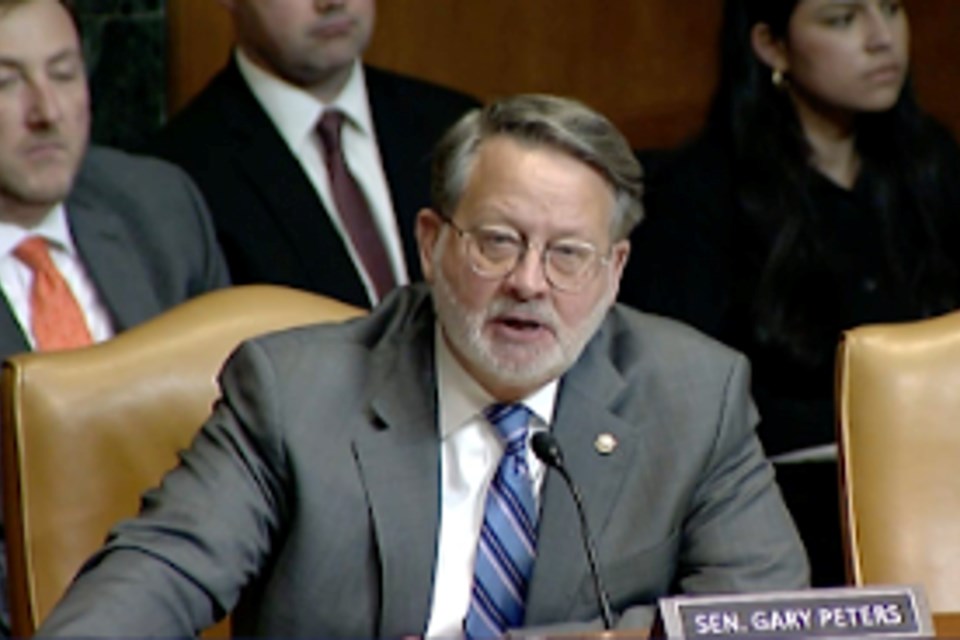NEWS RELEASE
U.S. SENATOR GARY PETERS
*************************
WASHINGTON, D.C. – U.S. Senator Gary Peters (Michigan) and U.S. Senator Ted Budd (North Carolina) introduced bipartisan legislation that would provide states and Local Workforce Development Boards (LWDBs) with budgetary flexibility to implement programming that responds directly to local employment needs.
Peters and Budd’s Lifelong Learning Act would update the 2014 Workforce Innovation and Opportunity Act (WIOA) to allocate additional resources to workforce training programs that address current talent shortages by upskilling existing employees and reconnecting individuals to the job market. Currently, WOIA provides federal funding to LWDBs, but the amount of funding that can be utilized for specific programs is limited.
“Local Workforce Development Board members live and work in the communities they serve, and they have the expertise needed to implement the right strategies for strengthening their regional job market,” said Senator Peters.
“This legislation gives them the flexibility to respond to the changing employment needs in their communities, helping to connect more individuals to in-demand jobs that are necessary to grow our economy and remain competitive globally.”
The Lifelong Learning Act updates WIOA guidelines, allowing LWDBs to:
- Utilize up to 30 percent of their Adult and Dislocated Worker budget for Incumbent Worker Training (IWT), which helps employers equip current employees with in-demand skills that expand career opportunities and avert layoffs. IWT programs have been crucial in helping LWDBs respond to broad labor market issues, such as increased automation and impacts of the COVID-19 pandemic. WIOA currently limits LWDBs from investing more than 20 percent of its budget for IWT programs.
- Expand the allowable cap for transitional job training opportunities from 10 to 15 percent, allowing LWDBs to offer more programs aimed at recruiting individuals back into the labor force. This includes programs for justice-involved individuals, young adults transitioning out of foster care, and those who have inconsistent work histories.
- Allow LWDBs to serve as the one-stop operators in local workforce areas to provide an integrated and coordinated system for delivery of workforce development programs and services tailored to local needs. WIOA includes a requirement that LWDBs identify and select a one-stop operator via a competitive process.
This legislation has been endorsed by the Michigan Works! Association, Third Way, and the National Association of Workforce Boards. Below are statements in support of the legislation:
“The Lifelong Learning Act represents a transformative step for workforce development, directly addressing the skilled talent shortages our businesses face and empowering workers through enhanced training programs. By increasing flexibility for Incumbent Worker Training and Transitional Jobs, this legislation allows us to effectively meet the evolving needs of Michigan's economy. It's a strategic move toward bolstering economic mobility and ensuring our workforce remains competitive,” said Ryan Hundt, CEO of the Michigan Works! Association.
“Local workforce boards play a critical role in creating a robust workforce development system that helps workers, employers, and regional economies thrive,” said Gabe Horwitz, Senior Vice President of the Economic Program at Third Way. “Senator Peters and Senator Budd’s Lifelong Learning Act will ensure local workforce boards have the tools, flexibility, and resources they need to better play that role and continue to adapt to our ever-changing economy.”
“Lifelong learning is critical to ensuring that workers have the opportunity to continuously update and enhance their knowledge and skills, keeping them competitive and relevant in a quickly transforming economy,” said Brad Turner-Little, National Association of Workforce Boards’ (NAWB) President and CEO.
“NAWB proudly endorses this legislation which would make crucial updates to the Workforce Innovation and Opportunity Act to ensure that workforce development boards have the flexibility and strategic autonomy required to provide the services and training experiences needed for success by workers and employers within their states and local communities.”
Peters has led numerous efforts to expand access to skills training opportunities and help more Michiganders secure in-demand, good-paying jobs. In 2023, he introduced legislation to strengthen reentry initiatives that prepare individuals for employment and connects them with workforce training initiatives.
He previously helped enact bipartisan legislation that included provisions he authored to expand access to career and technical education (CTE) opportunities outside of the traditional four-year degree career pathway. Peters introduced bipartisan legislation that was signed into law to allow more veterans to use their GI bill benefits toward securing a registered apprenticeship.
*************************



